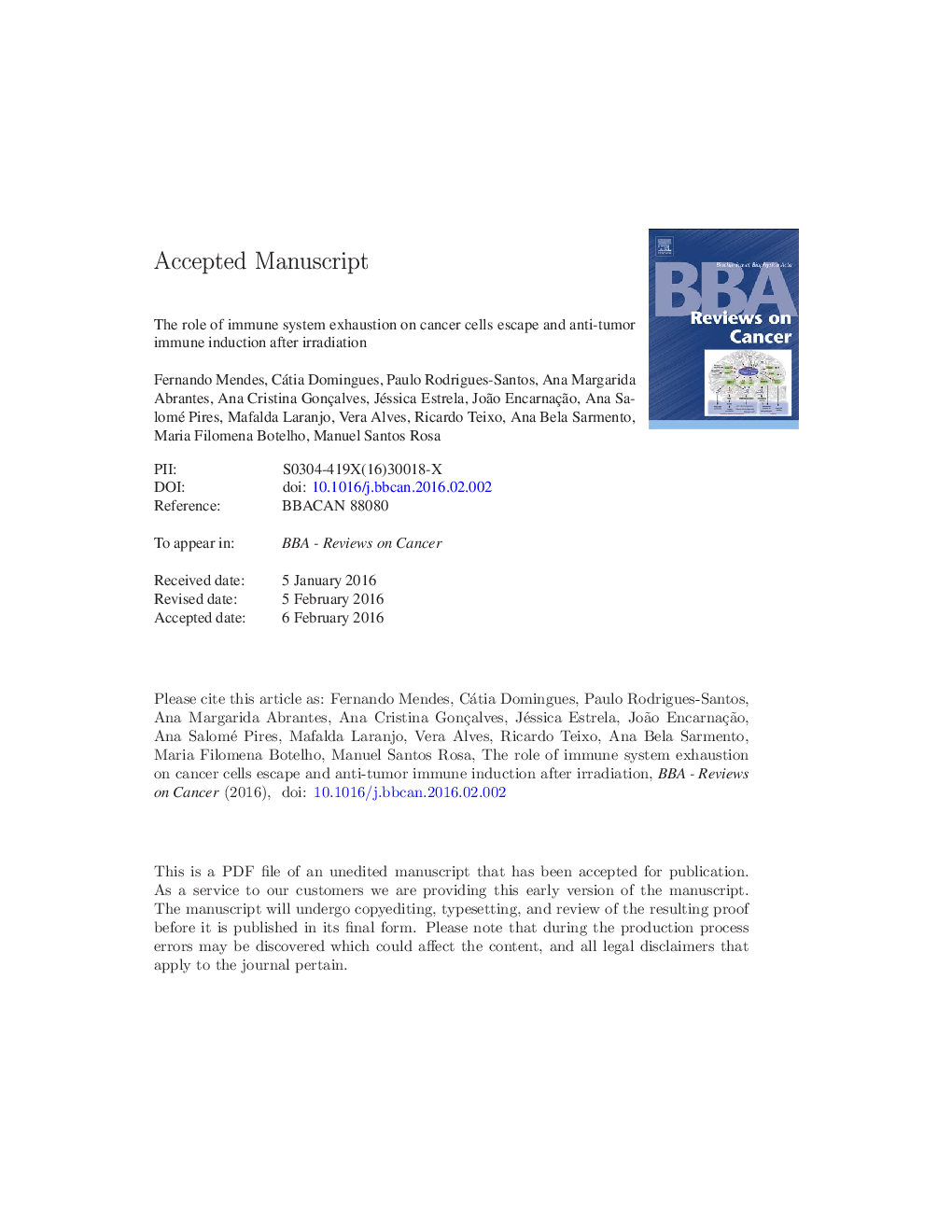| کد مقاله | کد نشریه | سال انتشار | مقاله انگلیسی | نسخه تمام متن |
|---|---|---|---|---|
| 10895534 | 1083076 | 2016 | 30 صفحه PDF | دانلود رایگان |
عنوان انگلیسی مقاله ISI
The role of immune system exhaustion on cancer cell escape and anti-tumor immune induction after irradiation
ترجمه فارسی عنوان
نقش خستگی سیستم ایمنی در فرار سلول سرطانی و القاء ایمنی ضد تومور پس از اشعه
دانلود مقاله + سفارش ترجمه
دانلود مقاله ISI انگلیسی
رایگان برای ایرانیان
کلمات کلیدی
موضوعات مرتبط
علوم زیستی و بیوفناوری
بیوشیمی، ژنتیک و زیست شناسی مولکولی
تحقیقات سرطان
چکیده انگلیسی
Immune surveillance seems to represent an effective tumor suppressor mechanism. However, some cancer cells survive and become variants, being poorly immunogenic and able to enter a steady-state phase. These cells become functionally dormant or remain hidden clinically throughout. Neoplastic cells seem to be able to instruct immune cells to undergo changes promoting malignancy. Radiotherapy may act as a trigger of the immune response. After radiotherapy a sequence of reactions occurs, starting in the damage of oncogenic cells by multiple mechanisms, leading to the immune system positive feedback against the tumor. The link between radiotherapy and the immune system is evident. T cells, macrophages, Natural Killer cells and other immune cells seem to have a key role in controlling the tumor. T cells may be dysfunctional and remain in a state of T cell exhaustion, nonetheless, they often retain a high potential for successful defense against cancer, being able to be mobilized to become highly functional. The lack of clinical trials on a large scale makes data a little robust, in spite of promising information, there are still many variables in the studies relating to radiation and immune system. The clarification of the mechanisms underlying immune response to radiation exposure may contribute to treatment improvement, gain of life quality and span of patients.
ناشر
Database: Elsevier - ScienceDirect (ساینس دایرکت)
Journal: Biochimica et Biophysica Acta (BBA) - Reviews on Cancer - Volume 1865, Issue 2, April 2016, Pages 168-175
Journal: Biochimica et Biophysica Acta (BBA) - Reviews on Cancer - Volume 1865, Issue 2, April 2016, Pages 168-175
نویسندگان
Fernando Mendes, Cátia Domingues, Paulo Rodrigues-Santos, Ana Margarida Abrantes, Ana Cristina Gonçalves, Jéssica Estrela, João Encarnação, Ana Salomé Pires, Mafalda Laranjo, Vera Alves, Ricardo Teixo, Ana Bela Sarmento, Maria Filomena Botelho,
